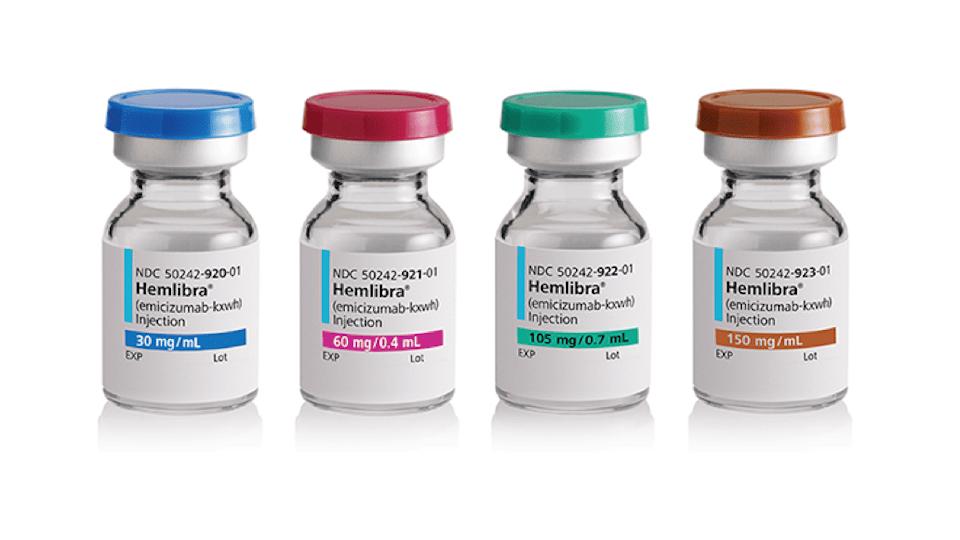Data stacking up for Roche haemophilia A drug

Roche has presented encouraging phase 3 efficacy data for its first haemophilia drug, but there remain lingering concerns over its safety.
Novo Nordisk and Shire are well established in the haemophilia market, worth around $11 billion a year, and Roche is hoping to make some serious inroads with emicizumab.
Analysts Evaluate Pharma predict sales of $1.5 billion in 2022, making the drug one of the biggest sales hopes in Roche’s pipeline.
Roche’s Genentech unit already announced preliminary results showing the HAVEN 1 study met targets before Christmas in patients aged 12 years or over with haemophilia A, on epidosidic or prophylactic treatment with bypassing agent therapy.
Latest data show that at 31 weeks, nearly 63% of patients receiving emicizumab prophylaxis on demand experienced zero bleeds, compared with 5.6% on bypassing agents.
And an interim analysis of the HAVEN 2 study, of 19 children younger than 12 years of age with factor VIII inhibitors, only one patient reported a treated bleed.
The study is planned to include 60 children for a final analysis evaluating a year of treatment with emicizumab.
Results were released ahead of the International Society on Thrombosis and Haemostasis (ISTH) industry meeting in Berlin in July.
Reuters reported that Jefferies’ Jeffrey Holford suggested in a note to investors that sales could peak at around $5 billion.
"If full presentation of the data at the ISTH reassures on safety, our mid-term EPS estimates and valuation could increase by 2% to 4%," Holford was quoted as saying.
The safety concerns Holford referred to are adverse events include thrombotic microangiopathy, damage to blood vessels in vital organs.
In studies these accompanied repeated high doses of bypassing agents given to counter bleeds when emicizumab treatment did not work.
Roche has played down the concerns, saying one patient refused blood transfusions for religious concerns.
With Novo Nordisk and Shire well established in the haemophilia market, worth around $11 billion a year, Roche is hoping to make some serious inroads with emicizumab.
Roche’s Genentech unit already announced preliminary results showing the HAVEN 1 study met targets before Christmas in patients aged 12 years or over with haemophilia A, on episodic or prophylactic treatment with bypassing agent therapy.
Latest data show that at 31 weeks, nearly 63% of patients receiving emicizumab prophylaxis on demand experienced zero bleeds, compared with 5.6% on bypassing agents.
And an interim analysis of the HAVEN 2 study, of 19 children younger than 12 years of age with factor VIII inhibitors, only one patient reported a treated bleed.
The study is planned to include 60 children for a final analysis evaluating a year of treatment with emicizumab.
Results were released ahead of the International Society on Thrombosis and Haemostasis (ISTH) industry meeting in Berlin in July.












